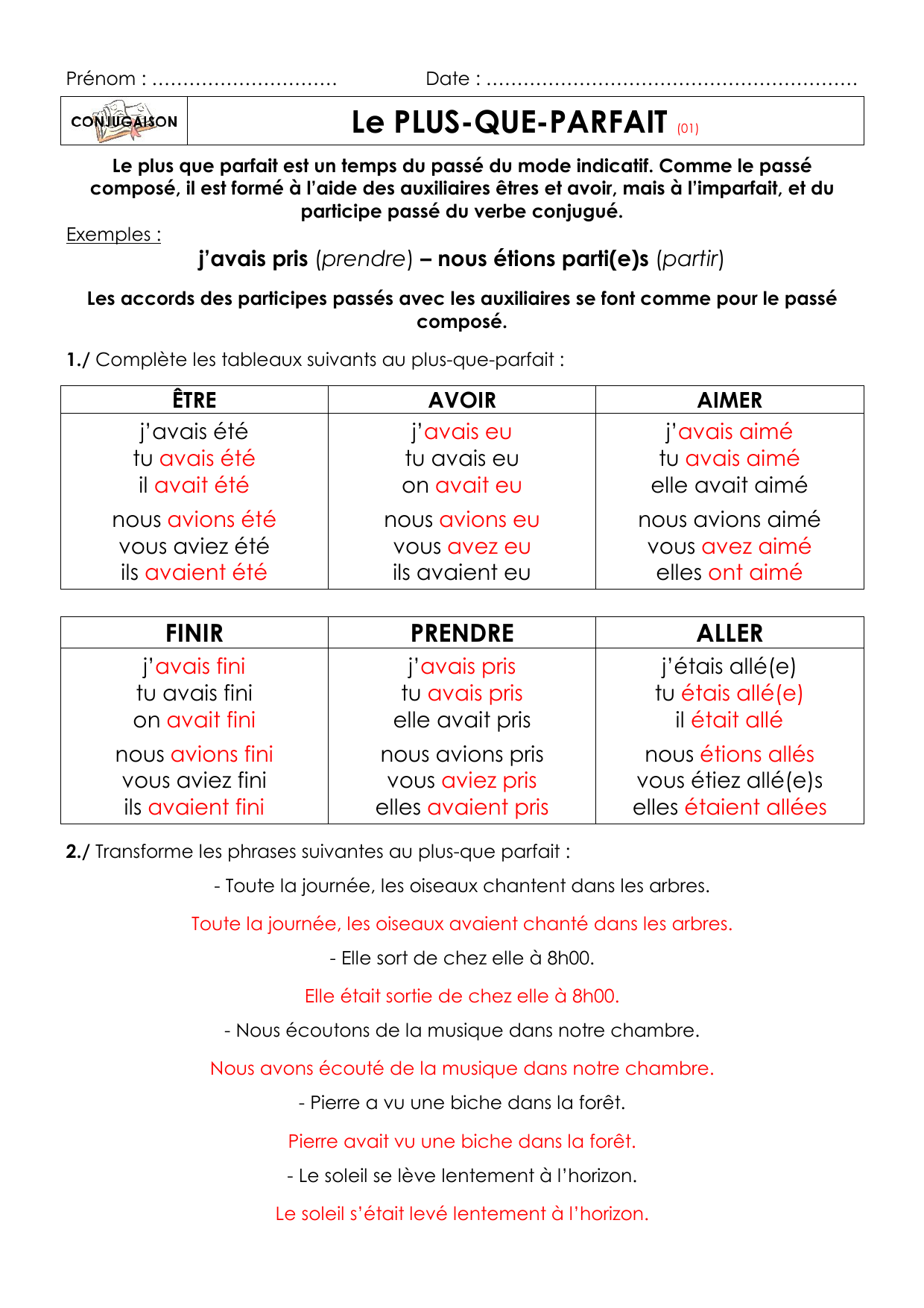

In the case of reflexive verbs (which always take être as their auxiliary in the plus-que-parfait), the participle generally agrees with the subject.Įxample: Nous nous étions lev és très tôt.Son père avait acheté des places ce concert. She had bought a flute.Įlle avait rencontré d’autres artistes.

She had bought a drum.Įlle avait acheté une flûte. This direct object can take three possible forms: a personal pronoun (me, te, la, nous, vous, les), the relative pronoun que, or a noun placed before the verb (usually in questions and exclamations).Įxample: Elle avait acheté un tambour. For verbs that take avoir in the plus-que-parfait, the participle only agrees in gender and number with a direct object that comes before the verb.They (only women) had gone to music school. They had gone to music school.Įlles étaient all ées à l’école de musique. He had gone to music school.Įlle était all ée à l’école de musique. When a verb takes être as a help verb, the participle agrees in gender and number with the subject.Įxample: Il était all é à l’école de musique.This agreement is necessary in the following cases: Agreement of the participe passéįor some verbs, the participe passé has to agree in gender and number with either the subject or the object of the sentence. If the infinitive ends in -re, the participle ends in uįor the irregular verbs, however, we have to look up the participle forms in the list of irregular verbs or check the verb conjugator – or simply learn the correct forms by heart.If the infinitive ends in - ir, the participle ends in i Example: fin ir – fin i.If the infinitive ends in -er, the participle ends in é Example: aim er – aim é.Example: À quelle heure étais -tu sorti ce matin-là ? What time had you left that morning? no direct object, sortir = leave but: Avais-tu sorti les carottes du frigo hier soir ? Had you taken the carrots out of the fridge yesterday evening? direct object: les carottes, sortir = take out Participe passé: the past participleįor the regular - er/- ir/-re verbs, the participe passé is easy to construct: In this case, the meaning of the verb often changes. We use avoir when descendre, (r)entrer, (re)monter, retourner and sortir are followed by a direct object.

I had gone to Brittany on holiday.Ĭheck out our page on avoir/être to pick up some tips on remembering which verbs take être as their auxiliary in the compound tenses.


 0 kommentar(er)
0 kommentar(er)
